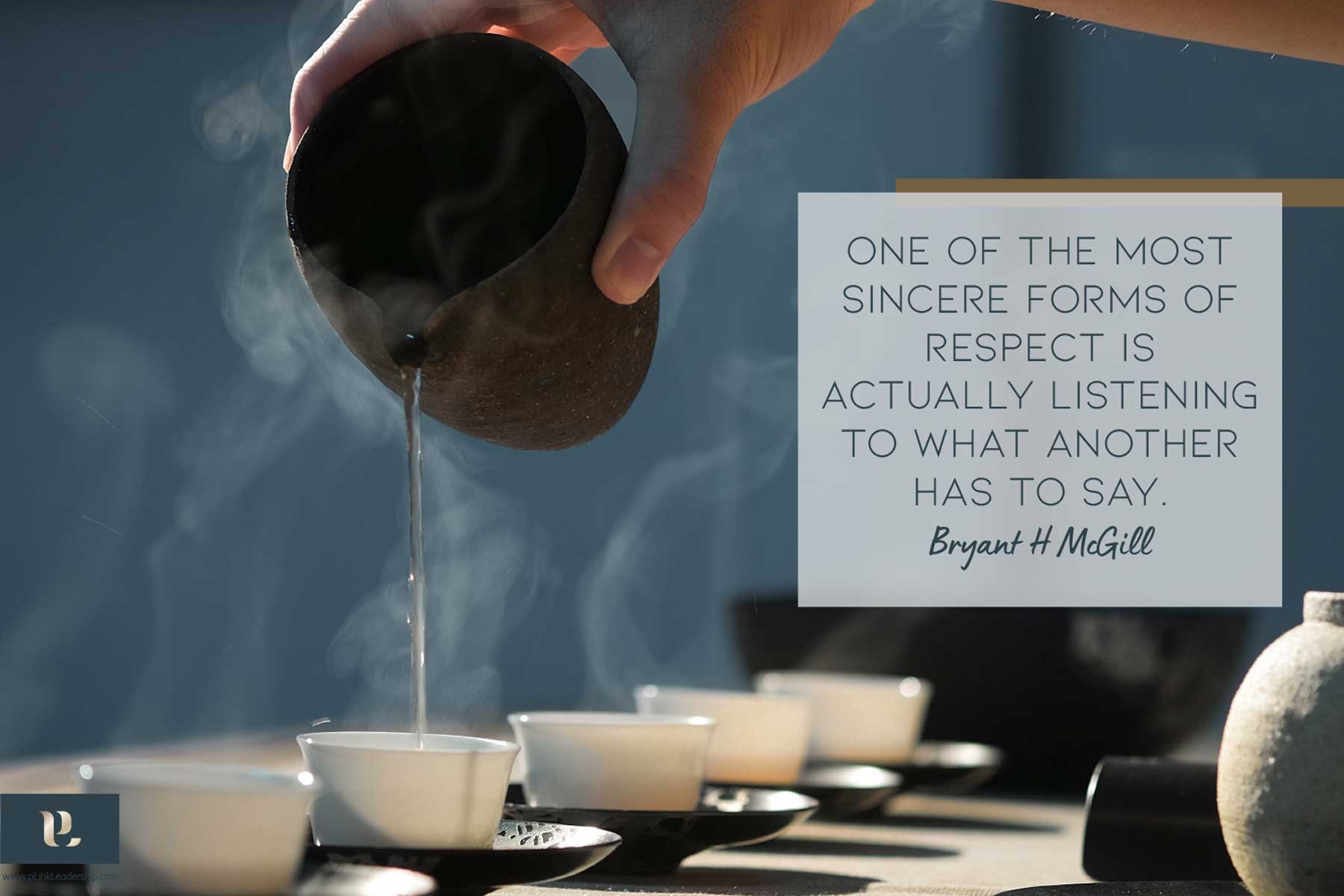“Listening is a magnetic and strange thing, a creative force … When we are listened to, it creates us, makes us unfold and expand. Ideas actually begin to grow within us and come to life.”
Brenda Ueland
“There is something different in the way I’m able to talk to him,” said my client, a manager at a large healthcare agency. “How is it different?” I asked. “Well, he doesn’t really act like a boss, although he has a lot of authority and a huge presence. But he’s never bossy. In fact, our supervision meetings are really a lot more like conversations.” She continued, “He asks a lot of really good questions, like he wants to really understand what I’m describing. He validates my ideas and my actions, and when I’m unsure, he has a way of getting me to talk things through until I feel more certain about what I need to do with my staff or my projects. Even when I’ve made a mistake, he doesn’t berate me. Instead, he asks me what I would do differently next time.” “So you like his style!” I said. “Yes,” she replied, “and I’ve been thinking that I want to be that kind of leader. Knowledgeable, approachable, and easy to talk to.”
I knew exactly the style she was describing. This is a boss interested in developing his people by creating an atmosphere of trust where they can learn and grow. He has practiced and mastered the art of reflective listening and conveying accurate empathy.
The unfortunate truth is that, all too often, most people listen just long enough to figure out what they want to say next. And what they say usually starts with “I.” “I think this …” or “I know just what you mean …” Even in agreement, the sentence starts with “I,” and that moves us away from the other person’s experience. It’s a natural thing to do. Our brains are wired for connection, and we are often looking to connect around things that feel familiar. Sharing our opinions is a way to create common ground, but it also diverts attention away from the person who is speaking. Setting our “I” aside, in the interest of truly hearing what the other has to say, takes intentional practice. It is one of the building blocks of effective communication.
What do good listeners do?
They listen to understand. The Chinese symbol for listening illustrates that listening includes complete, undivided attention and a willingness to tune in to what is being said as well as what is not being said. It involves listening with the heart and sensing the emotions of the person speaking.
In their 1957 article on Active Listening, psychologists Carl Rogers and Richard E. Farson wrote, “When people are listened to … they tend to listen to themselves with more care and to make clear exactly what they are feeling and thinking. [They] become less argumentative, more ready to incorporate other points of view. Because listening reduces the threat of having one’s ideas criticized, the person is…more likely to feel that his contributions are worthwhile. Listening builds deep, positive relationships and tends to alter constructively the attitudes of the listener. Listening is a growth experience.”
They listen without judgment. Oprah Winfrey shared what she learned during her 25 years of talk shows: “I’ve talked to nearly 30,000 people on this show, and all 30,000 had one thing in common: They all wanted validation. … [E]very single person you will ever meet shares that common desire. They want to know: ‘Do you see me? Do you hear me? Does what I say mean anything to you?’” She also said she tried to have an open mind and an open heart.
This is important. By turning off judgment, suppressing the need to be right, and resisting the desire to advise or fix the situation or bring the other person into alignment with us, we can tune in to the other person’s perspective. We may not agree, but we can show respect and reflect that we hear the other person’s view.
They ask open-ended questions. Open questions are always better at keeping the conversation moving. “Do you think that will work?” doesn’t leave much room for latitude. “In what ways do you think that will work?” is much better for continuing to explore. Good listeners show genuine interest by asking questions that encourage elaboration.
They reflect back what they hear. Once we sense what the person is describing or experiencing, we are in a position to share that we understand. This involves reflecting back what we think we hear (see, feel, etc.) and being willing to be corrected – because we may not always be accurate. Reflections are statements, and they create less defensiveness than questions. And our tone of voice is important in conveying empathy: “So, you’re frustrated?” could sound like a judgment or challenge. “You’re really frustrated,” said with a caring tone, is an attempt at empathic understanding. Reflect, clarify, and reflect again to get closer and closer to the experience that the person is describing.
They encourage collaboration and input. Reflective listening as a style can be contagious. It has powerful and positive effects on one-to-one conversations, teams, and organizations. It reduces conflict and brings people together. Leaders who model reflective listening create environments rich in trust and contribution. Couples who truly listen to each other have fewer arguments and conflict. Parents who listen to their children encourage openness and creativity.
So, what can we do to be a better listener as a leader, a manager, a team member, a partner, or a parent?
- Ask open questions.
- Be fully present. Listen with your ears, eyes, heart, and undivided attention.
- Validate the other person’s perspective and affirm their strengths, effort, and success.
- Listen with the intent to truly understand and convey accurate empathy.
- Reflect what you are hearing – not just the content, but the meaning underneath. Make a guess at the feelings, thoughts, and experiences.
- If you have a suggestion, ask permission to share it. “I have an idea that might be helpful. Would it be okay if I add an idea to your list?” This is collaborative, rather than authoritative.
This takes practice, but it is well worth it. Adopting this style comes with an element of risk. If we manage to accomplish what we are striving for, which is to show genuine interest, to understand the other’s experience, to see the world as another does – we risk being changed ourselves. As William R. Miller writes in his book, Listening Well, “Empathic understanding over time becomes part of who you are. Being open to understanding the experience of others changes you. It is like the difference between practicing an instrument and being a musician.”
Ask Yourself:
- Who do I most need to listen to?
- How can I listen more deeply and reflect that I understand?
Read:
Miller, William R. Listening Well: The Art of Empathic Understanding. (2018)
Nichols, Michael P. The Lost Art of Listening, Second Edition. (2009)
Miller, William R., and Rollnick, Stephen. Motivational Interviewing. (2013)
Gordon, Thomas. Twelve Roadblocks to Listening. Gordon: 12 Roadblocks to Listening
Watch:
The Power of Listening. William Ury. TEDX San Diego, 2015. https://www.youtube.com/watch?v=saXfavo1OQo



